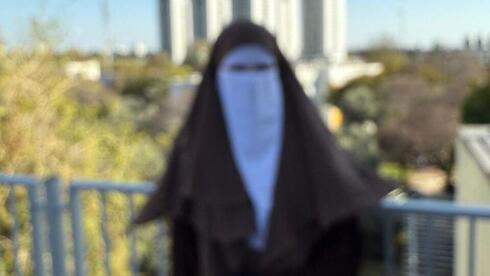Bar-Ilan University has barred a student from northern Israel from entering its campus for wearing a niqab — a traditional Muslim face-covering veil — claiming it violates university policy. The decision has sparked controversy over religious freedom and discrimination.
In a letter sent to the student by the university’s rector, Professor Amnon Albeck, he wrote: “I have received your request to wear the niqab during classes and around campus. I understand you are doing so now, despite being informed at the start of the academic year, in a conversation with Mr. Rafea Swidan, academic advisor for Arab society, that this is not permitted on campus.”
Albeck continued: “We respect every person and their desire to practice their religion, and we did so with you as well, understanding that you would wear a hijab — but not a niqab. A visible face is essential to maintaining teaching quality, classroom interaction, and hands-on learning, especially in fields such as optometry.”
The student strongly condemned the decision. “I am deeply shocked by this. I am a religious woman and wear the niqab as part of my faith. Everyone at the university has accepted me warmly, except for the administration, which is now targeting me for wearing the niqab. This harms me, my religion, and all Muslims. I have the right to choose my attire, and others must respect that.”
She added: “Wearing the niqab is not a stylistic choice for me — it’s a profound religious obligation. Removing it in the presence of unrelated men is a serious violation of my beliefs. I’ve studied almost an entire semester this way, attended classes, presented in front of students, and received applause and appreciation, including from Jewish students. The claim that the niqab hinders interaction is simply untrue.”
The student argued that the university’s decision violates core legal principles, primarily Israel’s Basic Law: Human Dignity and Liberty, which guarantees personal freedom, dignity and religious expression. She cited a landmark Supreme Court ruling – the Miller case, which affirmed freedom of religion as a fundamental right, as well as the Equal Opportunities in Education Law, which prohibits discrimination based on religion.
She also referred to the Adalah ruling, which determined that one worldview should not be favored over another, and to the International Covenant on Civil and Political Rights, which Israel has signed and is obligated to uphold, including protections for religious freedom in public and academic spaces.
“I’m not willing to compromise my religious beliefs in order to access academic services,” she wrote. “I will not remove the niqab, even at personal cost. If I don’t receive an equal and respectful response, I will consider legal action, appealing to human rights organizations, and turning to the media in Israel and abroad.”
In its response, Bar-Ilan University said that it “respects all individuals, including their right to practice their religion and customs, and this is how we treat every student. However, per university policy, a visible face is required of all students on campus — in classrooms, open spaces and academic settings.
“This requirement was clearly communicated to the student before her studies began and was accepted by her during the initial months. The visible-face policy is based on pedagogical, security and administrative considerations, intended to ensure proper learning processes that rely on open interaction, personal identification and student safety. Therefore, the university cannot allow participation in classes or presence on campus while the face is fully covered by a niqab.”




